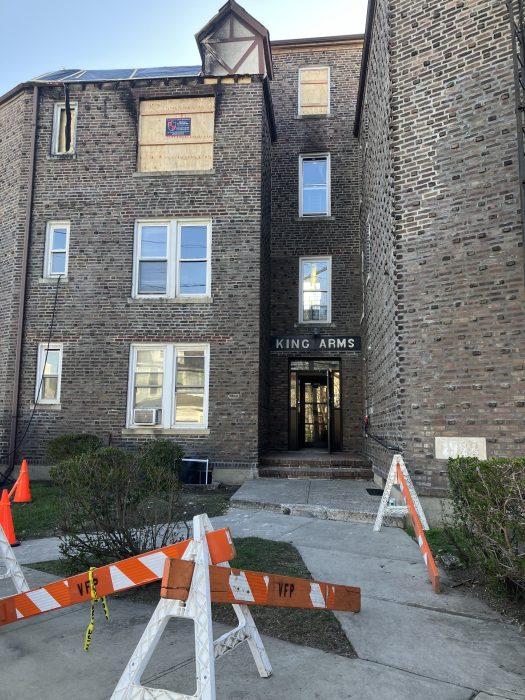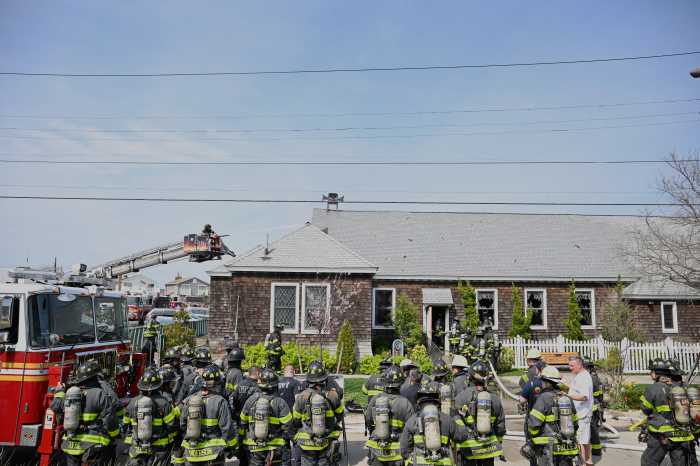The Long Island residential real estate industry had a good run in 2019 and in early 2020, fueled by low interest rates and low unemployment and despite limitations on state and local tax deductions, with robust demand and sometimes shrinking supply.
The coronavirus outbreak, however, has cast a cloud on real estate as well as other industries since March, nearly erasing the rosy picture of life B.C. — before coronavirus — amid growing uncertainty. Springtime is normally the strongest season for home sales.
“The entry level marketplaces and the bread-and-butter price ranges are very active,” Ann Conroy, CEO of Douglas Elliman Real Estate’s Long Island Division, said in early March. “The buyers are out there. People have jobs. The unemployment rate is very low. And interest rates are very low. As long as there’s affordability, you’ll have an active market.”
Home sales closed in Nassau and Suffolk in 2019 reached 29,053 valued at $15.8 billion in a banner year, according to the Multiple Listing Service of Long Island.
“What sold for X in 2018 wasn’t going to sell for X plus 10 percent in 2019,” Deirdre O’Connell, CEO of Daniel Gale Sotheby’s International Realty, said. “It took a while for homeowners to make adjustments in pricing that was more realistic.”
This year started on a high note with the January 2020 median home price for Long Island (including Nassau, Suffolk and Queens) closed sales at $480,000 up 6.4 percent over the prior year, according to the Multiple Listing Service of Long Island.
Nassau’s median closing price was $532,250, up 1.4 percent from $525,000 a year ago, according to MLSLI. Suffolk’s median reported closing price in January was $401,750, up 5.7 percent from $380,000 a year ago.
Median sales in Nassau and Suffolk (excluding the Hamptons and North Fork) were $450,000 according to Douglas Elliman Real Estate’s Quarterly Survey of Residential Sales 2019, provided by Miller Samuel Inc. appraisers and consultants, including condo and one- to three-family sales).
Low interest rates helped fuel higher home prices, providing a big boost. Rates fell to as low as about 3.5 percent for a 30-year fixed rate mortgage as of mid-March, according to Bankrate.com. O’Connell said she “entered 2020 optimistic,” with units under contract entering this year up 26 percent.
“Interest rates came down. Sellers are more realistic,” O’Connell said, noting the public has grown accustomed to the new State And Local Tax (SALT) deduction cap. “The SALT laws have become our new normal.”
Douglas Elliman’s report indicated that Long Island (excluding the Hamptons and North Fork) “listing inventory fell to a record low as sales and prices continued to rise” in 2019.
“The scarcity of supply has pressed prices higher for an extensive period,” according to the Douglas Elliman report.
Properties remained on the market for 72 days since listing in 2019, flat with 2018, but down from 117 in 2010, according to Douglas Elliman.
“The buying trends have been different than ten years ago,” Conroy said. “People like to live close to transportation now and vibrant towns.”
The coronavirus, and the reactions to it, put a big question mark over real estate and the region.
“Nobody, regardless of your crystal ball, can predict,” Conroy said.
O’Connell agreed it’s hard to tell how this infection will impact the real estate industry long term.
“I don’t know what kind of access homeowners will give us to homes,” O’Connell said. “I think the year should end OK, but I believe we’re going to have some bumps in the middle. This is a world event, not a local event.”
Providing open access to residences amid coronavirus concerns could become an issue. “We had a good weekend with open houses, but I’m seeing questions from my agents,” O’Connell said in early March. “What are we going to do about open houses? The impact is ahead of us.”
Investors could rush to real estate, reassured by the value of a tangible asset.“They (interest rates) are historically low,” Conroy said. “Look at the volatility of the stock market. What is the best place to invest your money? It’s in real estate.”
Real estate could provide a refuge for those seeking to invest, but also could be impacted by the economic downturn.
“I think people who are broad-minded will see this as a time of opportunity, a time to lock in for 30 years at an amazing interest rate,” O’Connell said. “We entered the year really positive. The coronavirus is an unknown factor. We hope the year will end as it started.”
O’Connell said “Confidence is everything,” adding that she hopes Long Island real estate will weather the coronavirus storm as it has weathered other forces.
“Bricks and mortar are solid,” O’Connell said. “You can hold it. You can feel it. Long term, we’re going to be fine.”

































